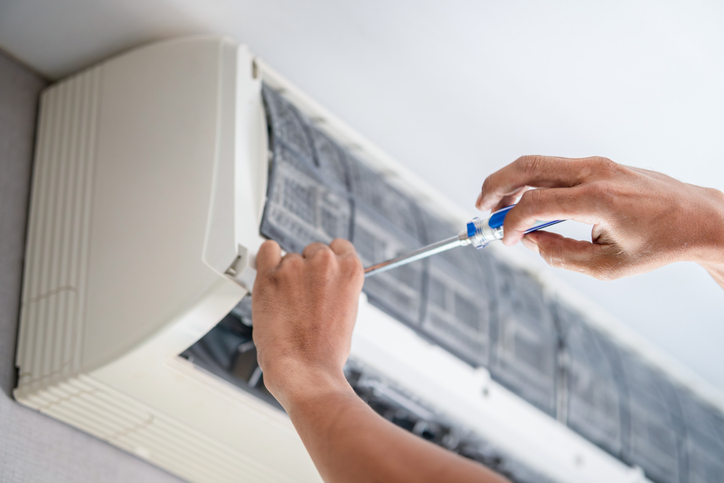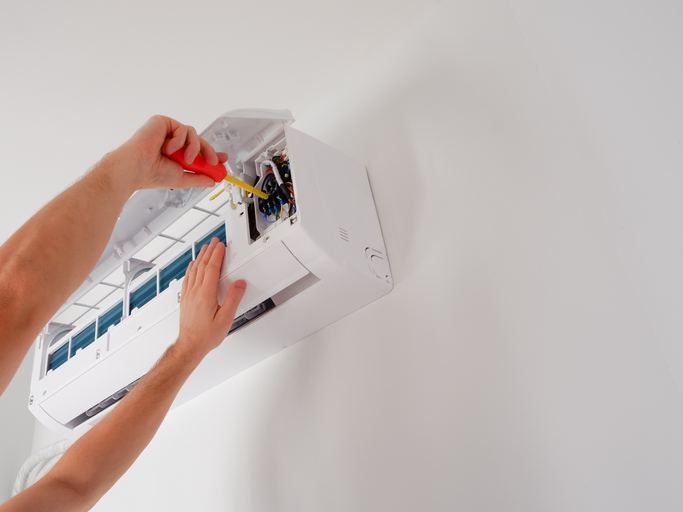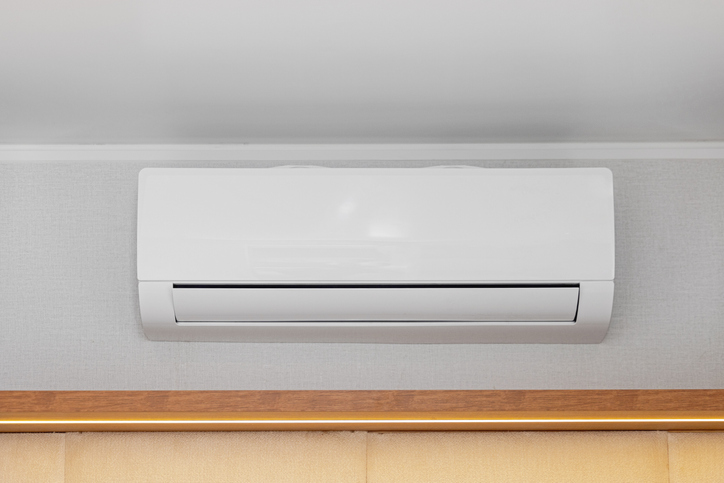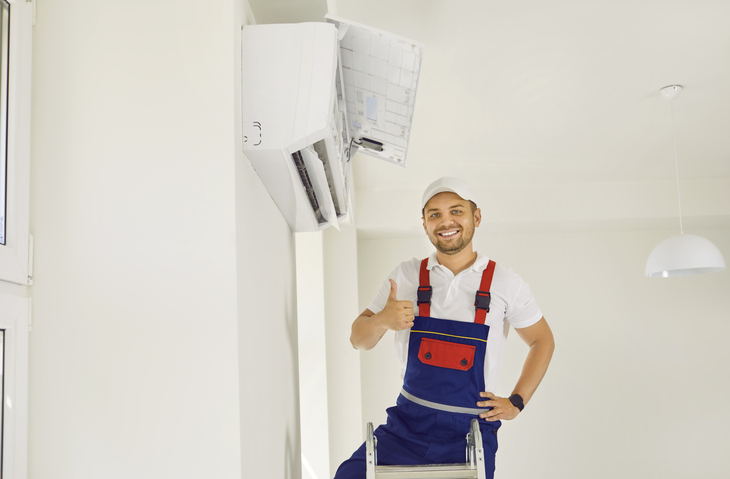Air conditioning plays a crucial role in modern comfort, but inefficient systems contribute significantly to energy waste and environmental harm. Poorly maintained AC units consume more electricity, leading to increased carbon emissions and excessive waste. Regular AC maintenance enhances efficiency, extends the system lifespan, and minimizes environmental impact. Understanding the link between AC servicing and sustainability can help homeowners and businesses make eco-friendly choices.
1. Energy Efficiency and Lower Carbon Emissions
Routine AC upkeep improves energy efficiency, reducing power consumption and associated carbon emissions. When filters, coils, and ducts are clean, the system operates smoothly without overworking. This lowers electricity demand, which translates to reduced reliance on fossil fuels for power generation. Homeowners who schedule regular maintenance contribute to a greener environment while saving on energy bills.
Proper maintenance includes cleaning or changing air filters, monitoring refrigerant levels, and inspecting coils for dirt buildup. A dirty evaporator or condenser coil forces the system to work harder, consuming more energy. Regular servicing prevents this issue and ensures optimal energy efficiency. Additionally, lubricating moving parts and calibrating the thermostat further contribute to improved performance, reducing overall electricity consumption.
2. Extended System Lifespan and Reduced Waste
Regular servicing prevents premature wear and tear, extending the lifespan of air conditioning systems. Neglected AC units break down more frequently, leading to replacements that generate unnecessary waste. By maintaining an AC system properly, homeowners and businesses can reduce the number of discarded units, minimizing landfill waste and conserving valuable resources used in manufacturing new equipment.
HVAC systems contain metals, plastics, and electronic components that can be recycled. However, many old AC units end up in landfills due to improper disposal. Investing in maintenance helps delay the need for replacement, reducing environmental impact. By keeping AC units in peak condition, property owners can lower electronic waste and contribute to a more sustainable future.
3. Proper Refrigerant Handling to Prevent Environmental Harm
Refrigerants play a crucial role in cooling, but improper handling can harm the environment. Refrigerant leaks release harmful greenhouse gases, such as hydrofluorocarbons (HFCs), that contribute to global warming. Routine maintenance includes checking for leaks, ensuring refrigerants are handled safely, and using environmentally friendly alternatives when possible. Proper refrigerant management significantly reduces a system’s environmental footprint.
Many older AC systems use R-22 refrigerant, which has been phased out due to its ozone-depleting properties. Upgrading to modern units with eco-friendly refrigerants, such as R-410A or R-32, significantly reduces environmental impact. Regular maintenance ensures that refrigerant levels remain stable and that no leaks occur, preventing harmful substances from being released into the atmosphere.
4. Reduction of Airborne Pollutants and Indoor Air Quality Improvement
Well-maintained AC systems filter out dust, allergens, and pollutants, improving indoor air quality. Dirty filters and neglected ducts allow contaminants to circulate, increasing health risks and contributing to environmental pollution. Clean systems minimize airborne waste, benefiting both personal health and the broader ecosystem. Improved indoor air quality reduces the need for additional air purification devices, further conserving energy.
Indoor air pollution is a growing concern, particularly in urban areas. Air conditioner maintenance helps remove harmful particles, including mold spores, bacteria, and volatile organic compounds (VOCs). A well-functioning system reduces respiratory issues and contributes to a healthier living space. By maintaining AC units properly, homeowners can enjoy cleaner air while minimizing environmental impact.
5. Sustainable Disposal and Recycling of Old AC Units
When an AC unit reaches the end of its lifespan, responsible disposal is essential to minimize environmental impact. Recycling old units and properly disposing of refrigerants prevent hazardous substances from polluting the environment. Many HVAC companies offer recycling programs, ensuring components like metal, copper, and plastic are repurposed instead of ending up in landfills. Proper disposal supports sustainability and reduces electronic waste.
The Environmental Protection Agency (EPA) recommends recovering and recycling refrigerants from decommissioned units. Homeowners should work with certified professionals who follow proper disposal guidelines. Some HVAC companies participate in take-back programs, ensuring old systems are dismantled safely and parts are reused whenever possible. Choosing responsible disposal methods prevents harmful chemicals from contaminating the environment.
6. Smart Thermostat Integration for Optimized Energy Use
Smart thermostats enhance AC efficiency by optimizing cooling schedules based on usage patterns. These devices reduce unnecessary energy consumption by adjusting temperatures automatically. Homeowners who integrate smart thermostats with regular AC care experience greater energy savings and lower carbon footprints. Combining technology with proper servicing maximizes both efficiency and sustainability.
Programmable thermostats allow users to set schedules that match their daily routines. Advanced models even use AI to learn preferences and adjust settings for optimal efficiency. When paired with routine AC upkeep, these smart devices prevent excessive energy use and reduce environmental impact. Encouraging smart thermostat adoption further supports eco-friendly HVAC practices.
7. Seasonal Maintenance for Consistent Performance
Regular seasonal AC tune-ups ensure peak performance throughout the year. Preparing systems before summer prevents overworking due to clogged filters, worn-out parts, or low refrigerant levels. Maintenance before winter helps optimize heating functions in units with heat pumps. Seasonal servicing keeps AC units in top shape, preventing excessive energy consumption and reducing overall environmental impact.
Spring and fall are the best times to schedule maintenance, as HVAC professionals can inspect systems before extreme temperatures increase demand. Checking ductwork for leaks, ensuring proper insulation, and calibrating thermostats during seasonal tune-ups prevent unnecessary strain on AC units. Regular maintenance avoids inefficiencies that lead to wasted energy and higher utility bills.
8. Encouraging Eco-Friendly HVAC Practices
Adopting eco-friendly HVAC practices beyond routine maintenance further minimizes carbon footprints. Energy-efficient AC models, solar-powered HVAC systems, and eco-conscious refrigerants significantly reduce environmental impact. Encouraging regular maintenance and sustainability-focused choices among homeowners and businesses fosters long-term benefits for the planet. HVAC professionals play a crucial role in promoting these greener practices. HVAC companies that offer green solutions help consumers make informed decisions that benefit both their homes and the environment.
AC maintenance is not just about system efficiency—it is a vital step toward reducing carbon footprints and environmental waste. Proper servicing lowers energy consumption, extends equipment lifespan, prevents harmful emissions, and promotes sustainable practices. By prioritizing maintenance, individuals can take small but impactful steps toward sustainability. The HVAC industry must continue advancing eco-friendly innovations and educating consumers about responsible air conditioning practices. Together, these efforts will lead to a more energy-efficient and environmentally conscious future.
Reduce your carbon footprint with expert AC Maintenance from RMR Air Conditioning. Improve efficiency, cut waste, and go green! Call us at (813) 778-3993 today for eco-friendly HVAC solutions.







